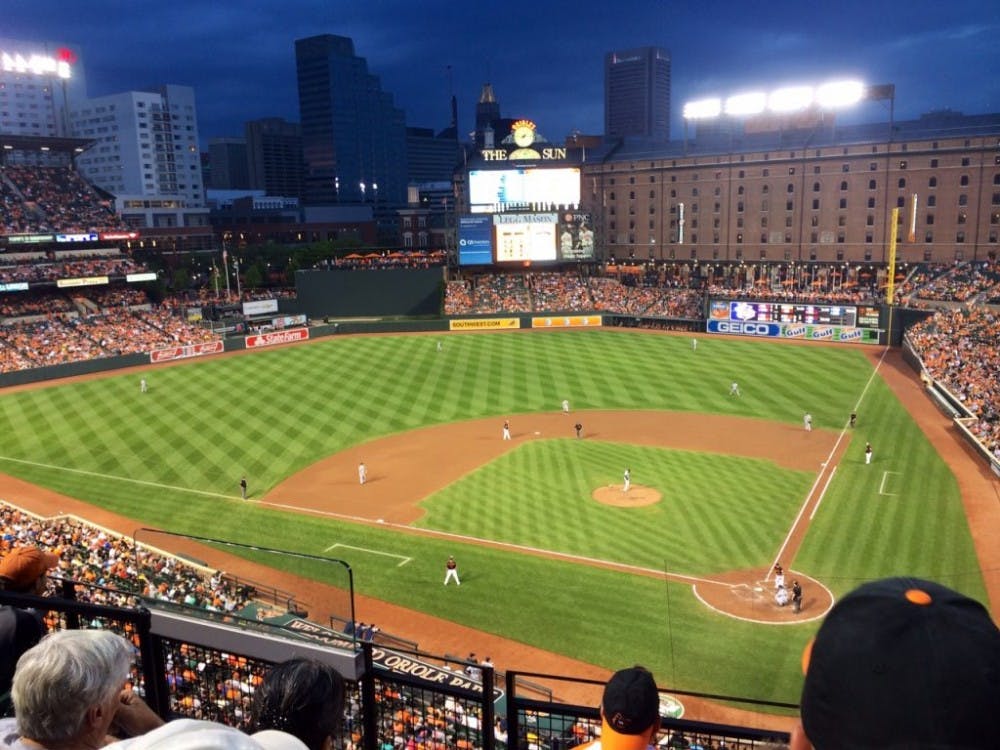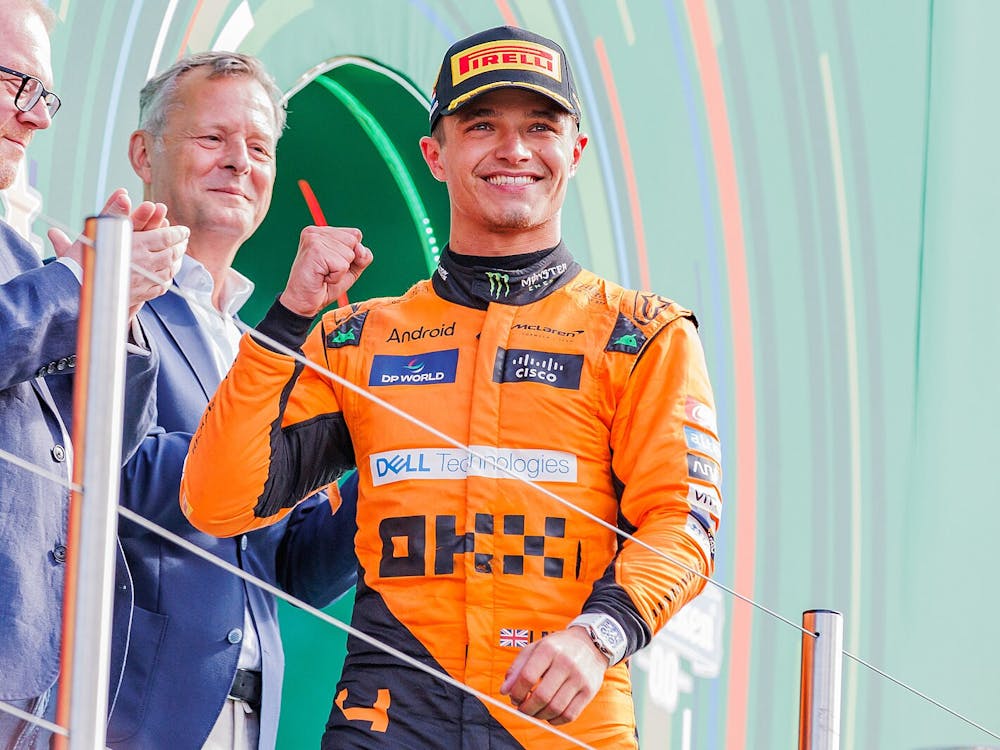Baltimore is home to two proud franchises, the Ravens and the Orioles, who have offered the people of Baltimore hope as the city has grappled with disinvestment and the decline of industry. Like a phoenix rising out of the ashes, the Orioles have experienced a profound resurgence in recent seasons.
Not too long ago, it appeared that the O’s would never sniff the playoffs again. The big-spending New York Yankees and the Boston Red Sox battled for American League (AL) East supremacy for nearly two decades.
Between 1997 and 2012, the Orioles failed to qualify for the postseason, and since 1983 they have not won a World Series or claimed an AL Pennant. It seemed like the team would never be relevant again, but the era of Moneyball has been very good to the game of baseball, and that includes the Baltimore Orioles.
The advanced metrics revolution pioneered by Oakland Athletics General Manager (GM) Billy Beane has swept across baseball. As teams like the Yankees, Dodgers and Angels were signing aging players in free agency to bloated 10-year contracts, small market teams became competitive again.
The recipe for small market success is excellent drafting and development of homegrown talent, shrewd trades and signings of low risk, high upside free agents. Teams like the Pittsburgh Pirates, Kansas City Royals, Tampa Bay Rays, Cleveland Indians and the aforementioned Orioles have broken through with postseason success in recent seasons after long droughts.
The Royals made the playoffs for the first time since 1985, when they claimed a wild card spot in 2014 and followed that up with an AL Central crown and a World Series Championship in 2015. In 2013 the Pirates qualified for the postseason for the first time since 1992 and then again in 2014 and 2015.
The Rays qualified for the postseason four times since 2008, managing to beat out both the Yankees and Red Sox for the AL East crown twice during that stretch. Just last season, the Indians made it to the World Series where they nearly dispatched the Chicago Cubs but ultimately let a 3-1 lead slip away.
All of these organizations relied on excellent young stars, experienced bullpen arms and talented managers to break their postseason slumps and contend against large market organizations. The formula for the Orioles’ resurgence has centered around a similar approach.
The team ushered in change when it hired manager Buck Showalter in 2010. Inheriting a 32-73 club during mid season, Showalter would win 34 of his first 57 games to close out the year. The Orioles would break their postseason slump in 2012, when they won 93 games and claimed an AL Wild Card bid.
This year also marked the debut of phenom third baseman Manny Machado, who has become a perennial All-Star and MVP candidate for the O’s. Then, in 2014, the Orioles would claim a division title behind Nelson Cruz’s 40 home runs and Adam Jones’ breakout season.
The even-year success continued for the O’s in 2016, when they claimed another postseason bid on the strength of potent slugging and an excellent bullpen. Although questions concerning the starting rotation were the storyline heading into 2017, the Orioles have had remarkable success out of the gate.
In fact, first baseman Chris Davis, designated hitter Mark Trumbo, Machado and Jones form one of the most feared lineups in all of baseball. Closer Zach Britton was absolutely automatic last season, saving 47 games and registering a minuscule 0.54 earned run average.
The starting rotation will remain an area of weakness for this team, but former first round pick Dylan Bundy has been excellent in his two starts to open the season. If the Orioles can receive quality innings from Bundy, Kevin Gausman and Wade Miley, they have a chance to be serious contenders in 2017.
Currently, at 4-2, the O’s sit atop the AL East, but the Tampa Bay Rays, Boston Red Sox and New York Yankees all lurk within one and a half games.
I was lucky enough to attend a Yankees-Orioles game last weekend, where the birds won 5-4. Orioles-Yankees contests are always bittersweet for me. I grew up on the game of baseball, played it for five years and attended countless Yankee games when I was little.
I fell in love with the Yankees of the ‘90s, teams which were led by Derek Jeter, Mariano Rivera and a young homegrown core. However, the team abandoned player development in the 2000s, instead opting to sign overpriced free agents.
The Yankees continued to win regularly, but it did not feel authentic. It felt like their wins were bought and solely a product of the immense economic advantage they held over other ball clubs. My interest in baseball began to dwindle. And when Jeter retired in 2014, my last remaining ties to the Yankees were severed.
I will still always love those Yankees teams, and I am happy that the Bronx Bombers have now finally committed themselves to a genuine youth movement. However, during my time at Hopkins, it is because of the Orioles that I have fallen back in love with baseball.
Camden Yards is the arguably one of the best ballparks in Major League Baseball. It is a modern baseball temple constructed in a neoclassical style that harkens back to the sport’s glory days.
I live for the roar of the crowd when a ball is hit onto the party porch in right field, the condiment races on the video board and the “waves” that flow and ripple throughout the stadium during commercial breaks.
Live baseball is one of the greatest experiences in all of sports. It is quintessentially American. April is here and Birdland beckons. I hope you join me at the ballpark sometime.






